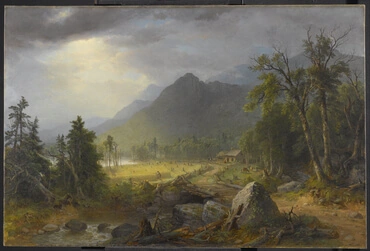1
Il terzo anno del regno del re Belsatsar, io, Daniele, ebbi una visione, dopo quella che avevo avuta al principio del regno.
2
Ero in visione; e, mentre guardavo, ero a Susan, la residenza reale, che è nella provincia di Elam; e, nella visione, mi trovavo presso il fiume Ulai.
3
Alzai gli occhi, guardai, ed ecco, ritto davanti al fiume, un montone che aveva due corna; e le due corna erano alte, ma una era più alta dell’altra, e la più alta veniva su l’ultima.
4
Vidi il montone che cozzava a occidente, a settentrione e a mezzogiorno; nessuna bestia gli poteva tener fronte, e non c’era nessuno che la potesse liberare dalla sua potenza; esso faceva quel che voleva, e diventò grande.
5
E com’io stavo considerando questo, ecco venire dall’occidente un capro, che percorreva tutta la superficie della terra senza toccare il suolo; e questo capro aveva un corno cospicuo fra i suoi occhi.
6
Esso venne fino al montone dalle due corna che avevo visto ritto davanti al fiume, e gli s’avventò contro, nel furore della sua forza.
7
E lo vidi giungere vicino al montone, pieno di rabbia contro di lui, investirlo, e spezzargli le due corna; il montone non ebbe la forza di tenergli fronte, e il capro lo atterrò e lo calpestò; e non ci fu nessuno che potesse liberare il montone dalla potenza d’esso.
8
Il capro diventò sommamente grande; ma, quando fu potente, il suo gran corno si spezzò; e, in luogo di quello, sorsero quattro corna cospicue, verso i quattro venti del cielo.
9
E dall’una d’esse uscì un piccolo corno, che diventò molto grande verso mezzogiorno, verso levante, e verso il paese splendido.
10
S’ingrandì, fino a giungere all’esercito del cielo; fece cader in terra parte di quell’esercito e delle stelle, e le calpestò.
11
S’elevò anzi fino al capo di quell’esercito, gli tolse il sacrifizio perpetuo, e il luogo del suo santuario fu abbattuto.
12
L’esercito gli fu dato in mano col sacrifizio perpetuo a motivo della ribellione; e il corno gettò a terra la verità, e prosperò nelle sue imprese.
13
Poi udii un santo che parlava; e un altro santo disse a quello che parlava: "Fino a quando durerà la visione del sacrifizio continuo e la ribellione che produce la desolazione, abbandonando il luogo santo e l’esercito ad essere calpestati?"
14
Egli mi disse: "Fino a duemila trecento sere e mattine; poi il santuario sarà purificato".
15
E avvenne che, mentre io, Daniele, avevo questa visione e cercavo d’intenderla, ecco starmi ritta davanti come una figura d’uomo.
16
E udii la voce d’un uomo in mezzo all’Ulai, che gridò, e disse: "Gabriele, spiega a colui la visione".
17
Ed esso venne presso al luogo dove io stavo; alla sua venuta io fui spaventato, e caddi sulla mia faccia; ma egli mi disse: "Intendi bene, o figliuol d’uomo! perché questa visione concerne il tempo della fine".
18
E com’egli mi parlava, io mi lasciai andare con la faccia a terra, profondamente assopito; ma egli mi toccò, e mi fece stare in piedi.
19
E disse: "Ecco, io ti farò conoscere quello che avverrà nell’ultimo tempo dell’indignazione; poiché si tratta del tempo fissato per la fine.
20
Il montone con due corna che hai veduto, rappresenta i re di Media e di Persia.
21
Il becco peloso è il re di Grecia; e il gran corno fra i suoi due occhi è il primo re.
22
Quanto al corno spezzato, al cui posto ne son sorti quattro, questi sono quattro regni che sorgeranno da questa nazione, ma non con la stessa sua potenza.
23
E alla fine del loro regno, quando i ribelli avranno colmato la misura delle loro ribellioni, sorgerà un re dall’aspetto feroce, ed esperto in strattagemmi.
24
La sua potenza sarà grande, ma non sarà potenza sua; egli farà prodigiose ruine, prospererà nelle sue imprese, e distruggerà i potenti e il popolo dei santi.
25
A motivo della sua astuzia farà prosperare la frode nelle sue mani; s’inorgoglirà in cuor suo, e in piena pace distruggerà molta gente; insorgerà contro il principe de’ principi, ma sarà infranto, senz’opera di mano.
26
E la visione delle sere e delle mattine, di cui è stato parlato, è vera. Tu tieni segreta la visione, perché si riferisce ad un tempo lontano".
27
E io, Daniele, svenni, e fui malato vari giorni; poi m’alzai, e feci gli affari del re. Io ero stupito della visione, ma nessuno se ne avvide.







